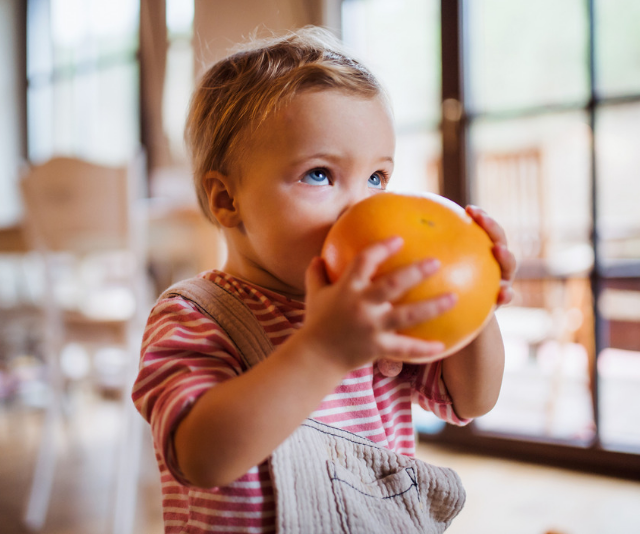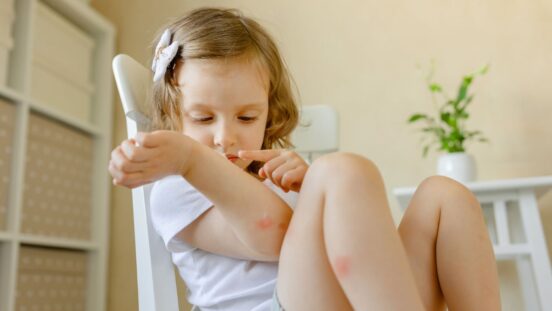Flu vaccine and children: Is it safe to give kids a flu shot?
Flu vaccination is a safe and effective way to protect you, your children and the community from serious disease caused by influenza.
Anyone who has parented a child through early education will be familiar with the fact that they like to share nasties with their classmates. Nits, school sores, a virus here and there … and when it comes to influenza, kids are the “super spreaders.”
Young children catch and spread the flu more than any other age group, which puts their peers and the rest of the community, including members of your own family at risk.
“We’ve all been genuinely concerned about coronavirus,” Dr Brad McKay tells Bounty Parents. “But it’s also important to remember that thousands of Australians die from influenza every year. It’s mostly people aged over 65 years, but a handful of children under 5 years also die from influenza.”
Vaccination remains the safest and most effective way to prevent influenza. Those vaccinated are less likely to catch the virus and develop serious complications compared with those who are unvaccinated.

Dr Brad McKay says: “Kids are known to be super-spreaders of influenza.”
“Kids are known to be super-spreaders of influenza,” Dr McKay explains. “Even kids with mild symptoms can still have a respiratory tract that’s pumping out copious amounts of virus, making them highly infectious to others.”
Thousands of children are hospitalised every year with complications that arise from catching the flu. Many children will need emergency department or GP visits due to a high fever, cough, pneumonia and convulsions. Rare but severe complications such as encephalitis (life threatening brain inflammation) can also occur, and mostly in healthy children.
“Influenza vaccination is highly recommended to protect kids under five years of age, because they’re more likely to die and more likely to spread the infection to others,” says Dr McKay.
For children aged six months to under five years, vaccination is available for free under the National Immunisation Program (NIP).
“Influenza might only cause your child to have a runny nose, but if the virus is transmitted to your parents, they may not survive it.” says Dr McKay.
Read more about the flu and who can be vaccinated below …

Those who are vaccinated are less likely to catch the virus and develop serious complications compared with those who are unvaccinated.
Influenza, commonly called the flu, is an infection caused by a strain (version) of the influenza virus. It mainly affects the nose, throat and lungs, although it can involve other parts of the body.
“Influenza makes every muscle in your body feel sore and heavy. You get high fevers and feel so tired you can hardly get out of bed,” explains Dr McKay.
“Most healthy adults feel better after a few days, but symptoms can continue for a couple of weeks.”
In healthy children the flu is pretty much like a bad cold; however, influenza can cause more serious illness, especially in very young children and those with chronic medical conditions which are outlined further below.
Influenza usually begins with a sudden fever and at least two of the following symptoms:
- aches and pains
- headache
- cough or noisy breathing
- sore throat and runny nose
- low energy
- nausea, vomiting and/or diarrhoea
WATCH: The Australian Academy Of Science Answers Commonly Asked Questions About COVID-19
Flu vaccinations for children
Flu vaccination is recommended for anyone who wants to protect themselves against influenza, including children over the age of six months old. The most effective way to protect those younger than six months of age is for their mothers to vaccinated during pregnancy.
Children aged under nine years who have not been vaccinated before will require two doses the first year that they have the vaccination. In young children who have been previously vaccinated, only one dose is required.
While it is recommended that everyone is able to be vaccinated does so, there are certain demographics for whom vaccination is even more important.
“You’re more likely to have complications from influenza, require admission to hospital, and are more likely to die, if you have a chronic disease like diabetes, lung disease, heart disease, or are pregnant,” says Dr McKay.
Influenza can be more serious in children with chronic medical conditions, including:
- chronic respiratory conditions (including asthma)
- chronic heart disease
- chronic neurological or metabolic conditions
- chronic kidney or liver problems
- diabetes mellitus
It can also be more serious in children who are immunocompromised. If your child has any of these conditions and they show signs of influenza, see your doctor.
Flu vaccination and children, is it safe?
“Influenza vaccinations have been studied since the 1930s, making them one of the safest vaccinations administered today,” says Dr McKay. “The flu vaccine is updated every year to match the influenza strains most likely to circulate around the Southern Hemisphere over winter.”
In Australia, childhood influenza vaccination was temporarily suspended in 2010 after an unexpectedly large number of children had high fevers, and in some cases seizures.
Those cases all related to a single brand of vaccine which was immediately withdrawn from use in that age group and is no longer produced. Those events were a catalyst for major changes in Australia’s approach to monitoring vaccine safety and parents can be assured that since those instances a decade ago, all flu vaccines now used in children have extensive clinical trial data demonstrating their safety.
Vaccine safety and side-effects are now tracked continuously through the AusVaxSafety program.
For the majority of people, the chance of having a serious side effect from a vaccine is much, much lower than the chance of the serious harm that may occur if you caught the disease.
Common side effects of influenza vaccines include:
- pain, redness, swelling or hardness where the needle went in
- fever, tiredness, body aches.
Talk to your immunisation provider about any side-effect concerns or if you or your child have possible side effects that worry you.




